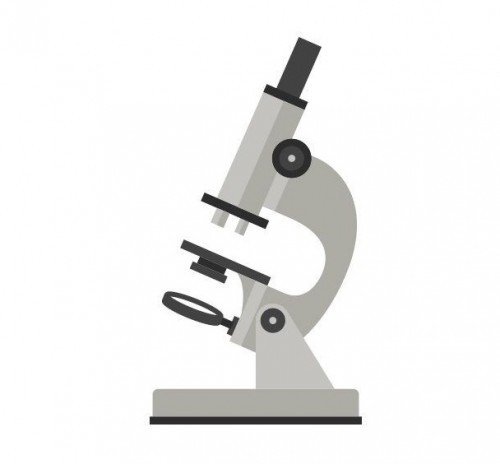 Department of Microbiology
Department of Microbiology

Dr. Hetal Panchal
Designation: Assistant Professor
Qualification: M.Sc. (Bioscience), Ph.D. (Micro.)
Experience: 20 years

Dr. Krishpa Shah
Designation: Assistant Professor
Qualification: M.Sc. (Bioscience), M.Phil., Ph.D. (Micro.)
Experience: 18 years

Dr. Riddhima Khatri
Designation: Assistant Professor
Qualification: M.Sc. (Micro.), P.G.D.M.L.T., Ph.D. (Micro.))
Experience: 10 years

Mrs. Nisha Shah
Designation: Assistant Professor
Qualification: M.Sc., M. Phil. (Micro)
Experience: 10 years

Dr. Shruti Singh
Designation: Assistant Professor
Qualification: M.Sc. Ph.D. (Micro.), P.G.D.M.L.T.
Experience: 7 years

Ms. Bhavika Tandel
Designation: Assistant Professor
Qualification: M.Sc. (Micro.),CSIR-(JRF)NET
Experience: 5 years

Dr. Dhaval Vyas
Designation: Assistant Professor
Qualification: M.Sc., Ph.D. (Botany)
Experience: 10 years
ABOUT MICROBIOLOGY
Microbiology is the study of microscopically-small living organisms such as bacteria, archaea, viruses, fungi, prions, protozoa and algae. Microbes are impossible to observe with the naked eye, they constitute up 60% of all living matter on Earth. They have huge impact on other living organisms. Microbiology is a vast and multidisciplinary field which overlaps with other life sciences such as genetics, biochemistry, molecular biology and even engineering. It aims to gain and expand fundamental understanding of microorganisms by studying their morphology, metabolism, physiology, reproduction and genetics, while others investigate their interactions with other organisms and role in ecology.
WHY IS MICROBIOLOGY IMPORTANT?
Activities and interactions of different microbes are vitally important to all processes on Earth and playing key roles in nutrient cycling, biodegradation, climate change, food spoilage, as well as the cause and control of disease.
Microbiology research has been a key to address many of the historical and current global challenges, such as maintaining food, water and energy security for a healthy population on a habitable earth. Fundamental microbial knowledge has led to the development numerous medical, veterinary, industrial, environmental and other biotechnology applications that benefit mankind.
By applying microbes in a range of controlled settings, microbiologists can harness their power for beneficial use in areas as diverse as healthcare, food production and agriculture.
The Microbiology Society sum up the importance of the field:
“Microbiology research has been and continues to be, central to meeting many of the current global aspirations and challenges, such as maintaining food, water and energy security for a healthy population on a habitable earth. Microbiology research will also help to answer big questions such as 'how diverse is life on Earth?', and 'does life exist elsewhere in the Universe'?”
The essential ongoing work of microbiologists includes making agriculture more sustainable, cleaning up pollution, manufacturing biofuels, and processing food and drink. With the threat of antibiotic-resistant bacteria and global pandemics on the rise, microbiologists are also helping to produce the vital life-saving drugs that many people around the world rely on for survival.
AREAS OF MICROBIOLOGY
Agricultural microbiology – try to combat plant diseases that attack important food crops, work on methods to increase soil fertility and crop yields etc. Currently there is a great interest in using bacterial or viral insect pathogens as substitute for chemical pesticides.
Microbial ecology – biogeochemical cycles – bioremediation to reduce pollution effects
Food and dairy microbiology – try to prevent microbial spoilage of food and transmission of food borne diseases such as botulism and salmonellosis. Use microorganisms to make foods such as cheese, yogurt, pickles and beers.
Industrial microbiology – used to make products such as antibiotics, vaccines, steroids, alcohols and other solvents, vitamins, amino acids and enzymes.
Microbial physiology and Biochemistry – study the synthesis of antibiotics and toxins, microbial energy production, microbial nitrogen fixation, effects of chemical and physical agents on microbial growth and survival etc.
Microbial genetics and Molecular biology – nature of genetic information and how it regulated the development and function of cells and organisms. Development of new microbial strains that are more efficient in synthesizing useful products.
Genetic engineering – arisen from work of microbial genetics and molecular biology. Engineered microorganisms are used to make hormones, antibiotics, vaccines and other products. New genes can be inserted into plants and animals.
Eligibility Criteria for B. Sc. Microbiology Course:
12th H.S.C. passed with Science (Group AB or B) from Gujarat Board / Any recognized Board.
Eligibility Criteria for M. Sc. Microbiology Course:
Passed graduation in B.Sc. Microbiology/Medical Technology/Biotechnology.
After B.Sc./M.Sc. Microbiology
Job Profiles:
· Research Assistant
· Food, Industrial or Environmental Microbiologists
· Quality Assurance Technologists
· Sales or Technical Representative
· Clinical and Veterinary Microbiologists
· Medical Technologists
· Biomedical Scientist
· Clinical Research Associate
· Microbiologist
· Pharmacologist
· Food Technologist
· Scientific Laboratory Technician
· Physician Associate
· Research Scientist (life sciences)
Employment Areas:
· Pharmaceutical Industries
· Universities
· Laboratories
· Private Hospitals
· Research Organizations
· Environmental Agencies
· Food Industry
· Beverage Industry
· Chemical Industries
· Agriculture Department
B.Sc. Microbiology
Subjects offered in B. Sc. Microbiology
(3 years bachelor degree programme)
|
Semester |
Core |
Subject with Title |
Paper No. |
|
I |
|
Language through Literature (English) |
|
|
|
Environmental Studies |
|
|
|
I |
History & Scope of Microbiology |
MB 101 |
|
|
Fundamentals Of Microscopy |
MB 102 |
||
|
Practicals |
MBP 103 |
||
|
II |
Botany: Plant diversity |
BOT - 101 |
|
|
Botany: Plant diversity, Nursery management and utilization |
BOT - 102 |
||
|
Botany practicals |
BOT - 103 |
||
|
III |
Zoology: Systematics and Animal diversity |
Z - 101 |
|
|
Zoology Practicals |
Z- 101 |
||
|
Zoology: Cytogenetic ecology and ethology |
Z - 102 |
||
|
Zoology Practicals |
Z - 102 |
||
|
OR |
|
||
|
Chemistry - I |
|
||
|
Chemistry - II |
|
||
|
Chemistry Practicals |
|
||
|
II |
|
Language through Literature (English) |
|
|
|
Environmental Studies |
||
|
I |
Procaryotic and Archaeal cell structure |
MB 201 |
|
|
Nutrition and bacterial growth |
MB 202 |
||
|
Practicals |
MBP 203 |
||
|
II |
Botany: Plant physiology, plant ecology, plant anatomy, medicinal plants and plant pathology |
BOT - 201 |
|
|
Botany: plant diversity and weed management |
BOT - 202 |
||
|
Botany Practicals |
BOT - 203 |
||
|
III |
Zoology: Comparative anatomy of Chordates, Applied zoology, wild life biology |
Z - 201 |
|
|
Zoology Practicals |
Z - 201 |
||
|
Zoology: Life processes, biochemistry, immunology and tissue system |
Z - 202 |
||
|
Zoology Practicals |
Z - 202 |
||
|
OR |
|
||
|
Chemistry - I |
|
||
|
Chemistry - II |
|
||
|
Chemistry Practicals |
|
||
|
III |
|
Written and Spoken Communication (English) |
|
|
|
Nutrition and Dietetics |
|
|
|
I |
Principles of bacterial systematics |
MB 301 |
|
|
Control of microorganisms in the environment |
MB 302 |
||
|
Virology |
MB 303 |
||
|
Practicals |
MBP - 304 |
||
|
II |
Plant physiology and plant ecology |
301 |
|
|
Plant anatomy, plant embryology and genetics |
302 |
||
|
Diversity of gymnosperms and angiosperms |
303 |
||
|
Practicals |
304 |
||
|
IV |
|
Written and Spoken Communication (English) |
|
|
|
Biodiversity |
|
|
|
I |
Biological molecules |
MB 401 |
|
|
Mycology, phycology and protozoology |
MB 402 |
||
|
Microbial Ecosystem |
MB 403 |
||
|
Practicals |
MBP - 404 |
||
|
II |
Lower cryptogams |
401 |
|
|
Higher cryptogams |
402 |
||
|
Plant geography, economic botany, seed plants and plant pathology |
403 |
||
|
Practicals |
404 |
||
|
V |
|
Language Through Literature (English) |
|
|
|
Hazards and Precautions in Microbiology Laboratory |
IDS |
|
|
I |
Principles of Bacterial Genetics |
MB 501 |
|
|
Basics of Imuunology |
MB 502 |
||
|
Microbial Metabolism |
MB 503 |
||
|
Applied Environmental Microbiology |
MB 504 |
||
|
Food and Dairy Microbiology |
MB 505 |
||
|
Hematology and Blood Banking |
MB 506 |
||
|
Practical |
MBP - 507 |
||
|
VI |
|
Language Through Literature (English) |
|
|
|
Biosafety in Microbiology Laboratory |
IDS |
|
|
II |
Genetic Engineering |
MB 601 |
|
|
Epidemiology and Medical Microbiology |
MB 602 |
||
|
Industrial Microbiology |
MB 603 |
||
|
Diagnostic Microbiology |
MB 604 |
||
|
Microbial Products |
MB 605 |
||
|
Genomics, Proteomics and Bioinformatics |
MB 605 |
||
|
Practicals |
MBP - 607 |
M.Sc. Microbiology
Subjects offered in M.Sc. Microbiology (2 years Master degree programme)
|
SEMESTER |
Paper Title |
Paper Number |
|
I |
Core Paper -I (CC-1): Microbial diversity |
MB - 1001 |
|
Core Paper - II (CC-2): Molecular biology and genetic engineering |
MB - 1002 |
|
|
Core Paper - III (CE-1): Environmental microbiology and biofuels |
MB - 1003 |
|
|
Inter / multidisciplinary (AECC) 4: Elective Paper –1 Biophysical techniques and instrumentation OR Elective Paper –2 Cell chemistry and molecular interactions |
MB - 1004 |
|
|
Practicals |
MBP - 1005 |
|
|
Skill Based elective paper / Swayam/ other MOOC courses GE-1 Biosecurity and Biosafety in Public Health Laboratories |
MB - 1006 |
|
|
II |
Core Paper -I (CC-1): Enzymology and Microbial Physiology |
MB - 2001 |
|
Core Paper - II (CC-2): Bioinformatics and Bio-nanotechnology |
MB - 1002 |
|
|
Core Paper - III (CE-1): Advances and Challenges in Immunology |
MB - 2003 |
|
|
Inter / multidisciplinary (AECC) 4: Elective Paper –1: Advances in Pharmaceutical Microbiology OR Elective Paper –2: Ecology and Evolution |
MB - 2004 |
|
|
Practicals |
MBP - 2005 |
|
|
Skill Based elective paper / Swayam/ other MOOC courses GE-1: Biofertilizer Production and Organic Farming OR GE-2: Cheese and Yogurt Production |
MB - 2006 |
|
|
III |
Fermentation technology |
MB - 3001 |
|
Microbial products |
MB - 3002 |
|
|
Bio-chemical engineering |
MB - 3003 |
|
|
Pharmaceutical microbiology |
MB - 3004 |
|
|
Practicals |
MBP - 3005 |
|
|
IV |
Seminar presentation |
MB - 4001 |
|
Dissertation |
MB - 4002 |
B.Sc. Microbiology
|
All theory Papers |
EXTERNAL MARKS |
INTERNAL MARKS |
|
50 |
20 |
|
|
Practical (Sem1/2) |
40 |
20 |
|
Practical (Sem3/4) |
60 |
30 |
|
Practical (Sem5/6) |
120 |
60 |
M.Sc. Microbiology
|
All theory Papers (Sem 1/2/3) |
EXTERNAL MARKS |
INTERNAL MARKS |
|
70 |
30 |
|
|
Practical (Sem 1/2/3) |
140 |
60 |
|
Seminar(Sem 4) |
70 |
30 |
|
Dissertation (Sem 4) |
350 |
150 |
B. Sc. MICROBIOLOGY
SEM - I = RS. 15755
SEM- II = RS. 15185
M. Sc. MICROBIOLOGY
SEM - I = RS. 40355
SEM- II = RS. 39805
Note:-
Fees are subject to change as per Veer Narmad South Gujarat University norms coming into force from time to time

CONFERENCE (MBPGSGC2025)
Department Event
7 months from now

UGAM Intercollege Competition µ-quest 2024
Department Event
1 year ago
Microbiology Department Level Event
Unde...

Inauguration of MBSI (Microbiology Society of India) Logo
Department Event
1 year ago
Microbiology Department Level Event
Chi...

Guest Lecture for M. Sc. SEM II and IV students “Role of Microbiologists to Create an Antimicrobial Resistance Awareness”
Department Event
1 year ago
Microbiology Department Level Event
Res...

Industrial Visit at Pollucon Laboratories Pvt, Ltd., Surat
Department Event
1 year ago
Microbiology Department Level Event
Gro...